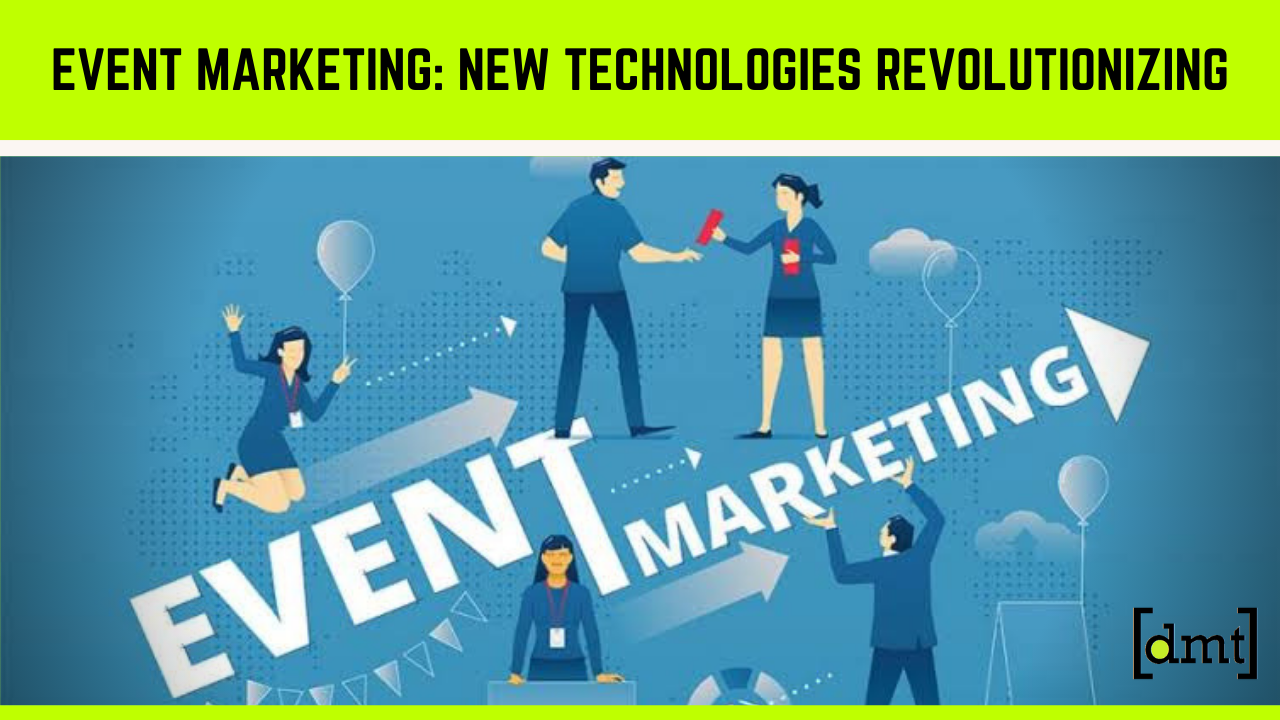Nowadays, technology is driving every sector in the world because of its fast-paced ability to get things done. And the events industry is definitely not a stranger to this fact.
In recent years, the events industry is almost unrecognizable and continuously grows. According toa report, event contributes a total of $115 billion to the US GDP (Gross Domestic Product), with subsequent billion funneled to both federal and state tax revenue.
Event Marketing: How New Technologies Are Revolutionizing An Age-Old Business Share on XAnd the even industry is not just growing in the US— it is also getting bigger in nations such as Japan, India and the UK.
And such growth can be the result of new technological trends as well as mind-boggling innovations paving the way. Here’s how new technologies are revolutionizing the event industry.
-
Tickets Are Now Mobile
Mobile is now taking every industry by storm. And the events industry will never be left behind. The first wave of this mobile innovation has come in the form of ticket buying systems. Now, events have become paperless and cashless.
Once upon a time, consumers can only buy tickets from different sources and show up at events showing a printed paper copy of their ticket in order to enter. This adds a lot more costly as well as ticket management expenses to the events.
https://flickr.com/photos/22896912@N04/3665953311/
Not only are these tickets less efficient, but they also tend to create more line queues and hinder profits. In simpler terms, they did not offer that much to live event organizers.
This is where the introduction of online mobile ticketing comes in. Buying a ticket online or on an event app is a much more convenient way of ticketing. With a single platform, consumers can save, buy and access their tickets directly from one place, Ticket holders won’t have to carry a tiny paper that can get lost in their pocket and have digital passes instead that is available on watches and smartphones to enter the venue, completely hassle-free.
Recommended read: Tips on Finding the Right Outdoor LCD Advertising Screen Vendor
Utilizing proximity-based tech, a tap-and-go ticket entry scanning system can be developed, this reduces cash management costs for the event venues as well as queuing time for ticket purchasing.
Not only that, with mobile payments such as Venmo, Google Pay, and Apple Pay so readily available, consumers can now show up to events completely cashless and easy check-in.
-
Beacons and IoT
As more and more back-end software improves the business case for events, the IoT and other innovative techsare also transforming how a marketer tracks the experience of their attendees inside the b2b conference hall.
Take Content Marketing World, for instance. According to the marketing VP at CMI, Cathy McPhillips, attendees can now scan to sessions using RFID (Radio-Frequency ID) badges which can give CMI and accurate views of who attended their events and see which sessions were the most popular— 360-degree gold mine of data for the events team and salespeople.
https://flickr.com/photos/166285659@N03/47622041772/
Other companies can use apps in a similar way in order to track guests’ flow and gather any data on attendees’ behaviors during the event. And while not everyone will definitely download the app— making the data incomplete— newer technologies such as wearable beacons can simplify tracking of guests’ experiences quick and easy.
Not only that, but this tech also benefits attendees as well. These beacons can help them find the path to the next session, connecting them to fellow guests for networking as well as providing personalized recommendations.
Recommended read: 17 Proven Ways to Drive Traffic to Your Website in 2020
Although it may sound creepy, it is up to the marketers they can balance the attendee experience improvement by asking for more data. And if they can totally nail it, they can make this a longstanding cornerstone of event marketing more powerful than ever!
-
Virtual Reality Technology
VR has been all the hype nowadays. So, it is no shock that it is also changing the game in the event industry. AS of right now, VR tech is introducing the possibility of having a 360-degree interactive experience from their chosen seat before they even step into a stadium.
In the near future, the use of VR is expected to revolutionize live events entirely, by eliminating the needs for a physical attendance. This can pen up events to guests that otherwise can’t attend due to expensive prices or locations. People can participate in the VR viewing of the live event for a smaller price and possibly at the comforts of their own home. As a result, consumers have more opportunities to attend their chosen events without the fear of missing out.
-
AR and Mixed Reality
Just imagine putting on a headset and seeing a hologram of a product right in front of you. You can use your hands to spin the system around, seeing the product from various angles, pulling it apart and inspecting every single component.
https://flickr.com/photos/137288838@N05/42879320960
Sounds like Tony Stark right?
With the advancement of AR and Mixed Reality tech, this is no longer fictional and offers a lot of advantages in the event industry. Takinga deeper dive into the automation system or dissecting a wall system is much easier than in real life, as well as much safer. Augmented and mixed reality allow nearly any feature, talking point of benefit to be easily communicated and experienced by the audience.
These techs are usually used at Auto Shows where users are given mixed-reality devices such as headsets, giving them a greater level of interaction that they can experience with static displays.
-
More Revenue, Less Cost
A study revealed that the use of event technology can create at leasta 20 percent increase in attendance while also reducing the related costs by at least 30 percent. Event technologies are considered as net revenue generators on a consumer’s profit and loss. They do this by using predictive analytics to drive and enable purchase decisions while algorithms help enhance the in-seat experience with real-time alerts and notifications in order to motivate future purchases.
In the past, providers have tried to have low-cost solutions, however, the future of the vent industry may require them to have no-cost solutions and providing additional value.
General FAQs
Event marketing is a strategy marketers use to promote their brand, product, or service with an in-person or real-time engagement. These events can be online or offline, and companies can participate as hosts, participants or sponsors.
A key reason for a business to participate in an event is to establish and build its brand. Event marketing allows your company to cultivate and express its identity firsthand. Through events, you gain the perfect venue to share your ideas, thoughts, and name in the exact manner you want to present them.
The benefits of event marketing are far-reaching. They provide you with the opportunity to grow your company’s awareness, sales and positioning through valuable face-to-face relationships.







